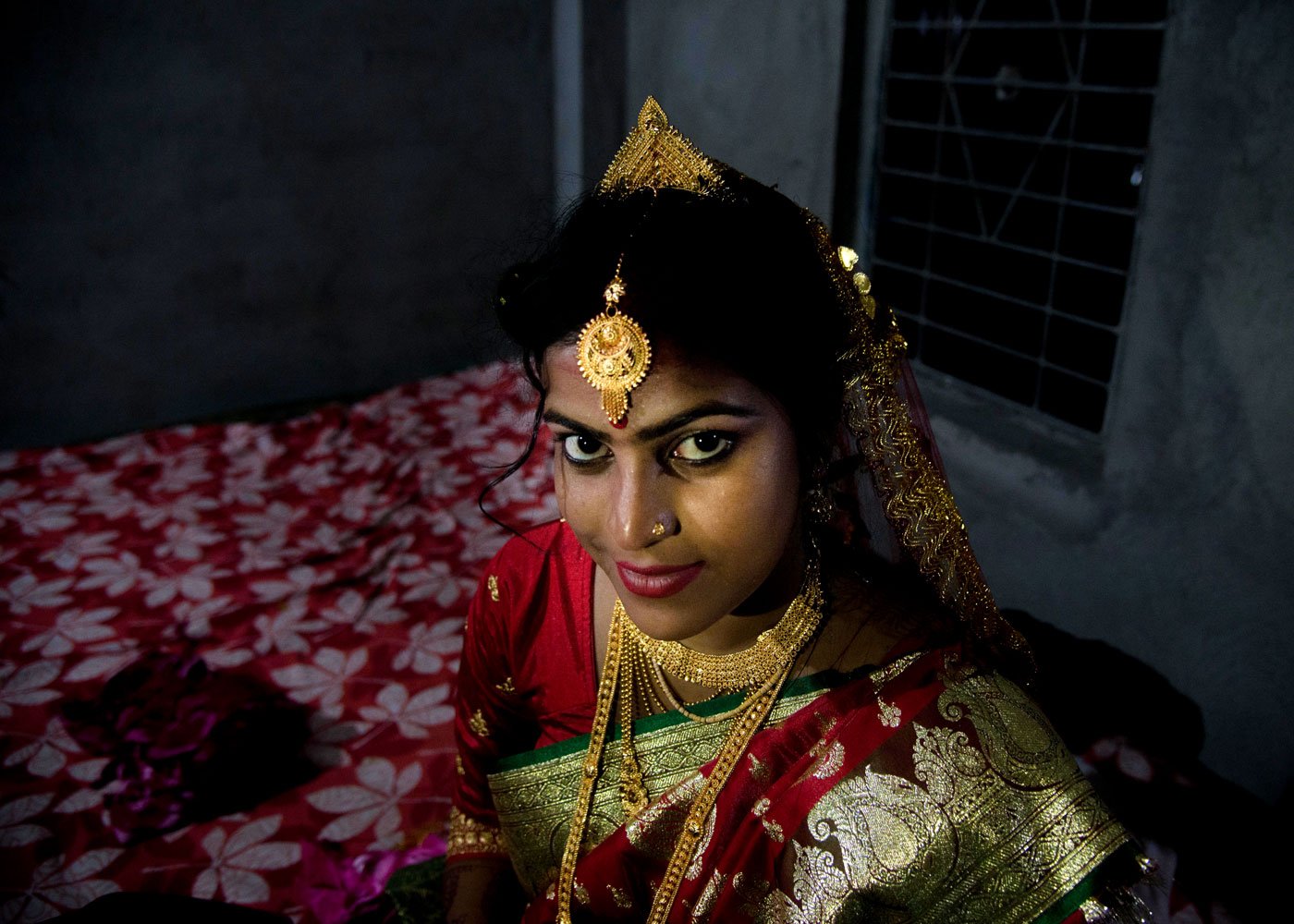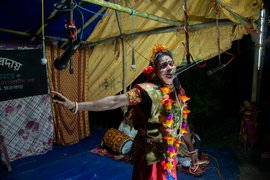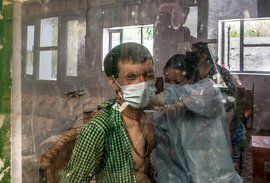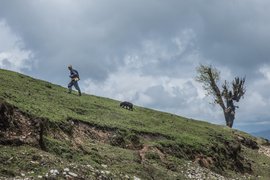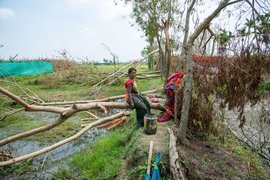"I wish Baba was here with me," whispered Priyanka Mondal. Saddened by her memories, she sat dressed in shimmering red and gold with flowers on her lap, in the pink and blue palanquin that would ferry her to her husband’s house in Rajat Jubilee village.
Priyanka, 23, also a resident of this village in West Bengal’s South 24 Parganas district, was getting married to 27-year-old Hiranmay Mondal on December 7, 2020. Hiranmay lived next door and worked as a floor executive in a retail clothing store in Kolkata. They were in love and had planned to marry in 2019.
But their wedding in this village in the Lahiripur gram panchayat of the Sundarbans had to be postponed when Priyanka’s 45-year-old father Arjun Mondal was killed by a tiger on July 29, 2019. Arjun, a fisherman, was on a regular trip in the Pirkhali Gazi forest area in the heart of the Sundarbans’ tiger reserve to hunt for crabs. The remains of his body were never found.
Each time Arjun ventured into the forests to hunt crabs, his family feared for his safe return. Arjun had his daughter’s wedding in mind when he made what would be his last hunting trip in July 2019.
“We needed money for Priyanka’s wedding. Arjun couldn’t avoid going to the forest, but he had a sense of foreboding, as if something bad was going to happen,” said his wife, Pushpa.
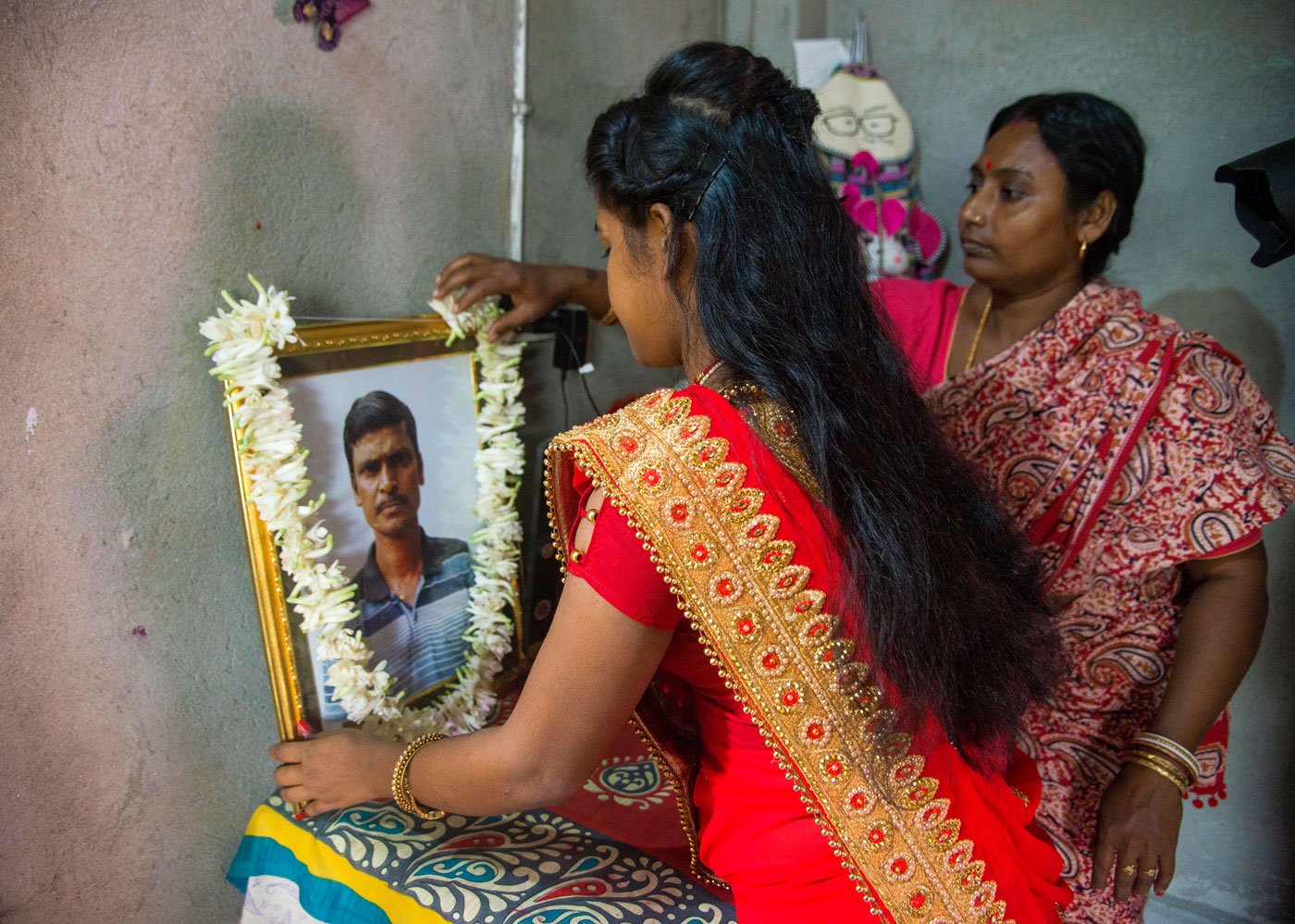
Priyanka Mondal garlands her late father's photo before her wedding ceremony
With Arjun’s sudden death, she alone had to shoulder the tasks of tending to the household and providing for their daughter Priyanka and son Rahul. “Priyanka’s marriage was her father’s dream. I knew I would fulfil it at any cost. How long could I have kept her waiting?” she asked. The marriage cost roughly Rs. 170,000 – a very heavy amount for Pushpa, who is in her late 30s.
The shock of Arjun’s passing, the family’s precarious finances and becoming the sole parent to her children, greatly affected Pushpa’s health. She began to experience chronic stress and became depressed. Cyclone Amphan, on May 20, 2020, made things worse. And the Covid-19 pandemic only sharpened her tension and anxieties. Her blood pressure begun to fluctuate and she developed anaemia from a lack of nutritious meals. “There were several days during the lockdown when we did not even eat properly,” said Pushpa.
After his father’s death, Rahul, just 20, was under pressure too, to earn more for the family. He had started working as a daily wage labourer in the fields and on construction sites. His mother’s deteriorating health only pushed him to work harder. He accumulated Rs. 8,000 through odd jobs in a few months before the lockdowns affected his work – all of which he spent on the wedding.
Pushpa was forced to mortgage their house – just two small rooms and a kitchen – for a loan of Rs. 50,000 at an annual interest rate of 34 per cent from a local moneylender. If the family can return half the loan amount in six months, they may be granted another six months to fully repay it. “If we cannot return the money, I am afraid we won’t be able to keep the house. We will be on the street,” said Pushpa.
But there are some silver linings too that she is grateful for. “Hiranmay [her son-in-law] is a good human being,” she says. “When the lockdown was in place, he really helped us. He would come home, do the shopping and run errands. The two were not even married at that time. His family did not even demand a dowry.”
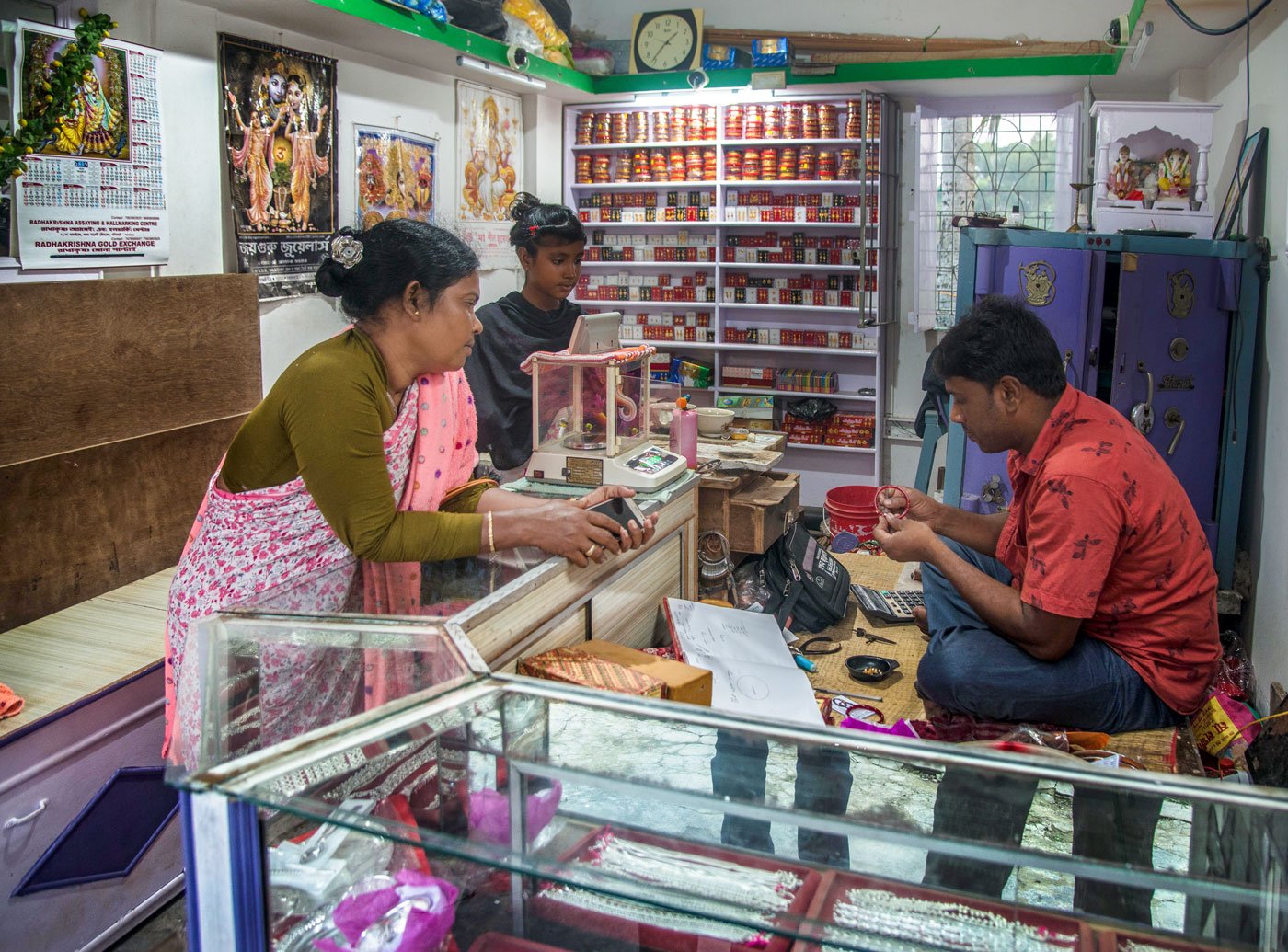
Pushpa Mondal purchases
pola
, coral bangles worn by Bengali brides, from a local jewellery store. 'I never imagined I would have to do this by myself', she says
On the day of the ceremony, Priyanka donned her gorgeous green, red and gold saree with golden ornaments to match, and put on her wedding make-up. She was unaware of their house being mortgaged to cover the costs of her wedding.
The evening event saw 350 guests at the Mondal’s residence. The house, decorated in twinkling yellow lights, was further brightened by those gathered there – fishermen and women, honey collectors, teachers, boat makers, folk musicians and dance artistes. All had known Arjun as a person closely associated with the people of the Sundarbans and their sorrows, someone who had cared deeply for their lives and well-being.
Many of the women gathered to celebrate the wedding were cooking and helping with other arrangements. Overjoyed and stressed at the same time, Pushpa fainted more than once during the wedding, but was relieved that Hiranmay and Priyanka were finally married.
Once the ceremonies was over, Pushpa had to deal with the creditors – Rs. 40,000 had to be immediately paid to the decorators and electricians. “My mother’s health will deteriorate further when people come asking for money” says Rahul. “I will work extra hard to earn.”
Pushpa also has to fight an uphill battle with the state bureaucracy for the compensation that she had applied for after Arjun’s death. The families of tiger-attack victims are eligible for roughly Rs. 4-5 lakhs from the West Bengal government’s Forest Department, Fisheries Department and the state’s Group Personal Accident Insurance Scheme.
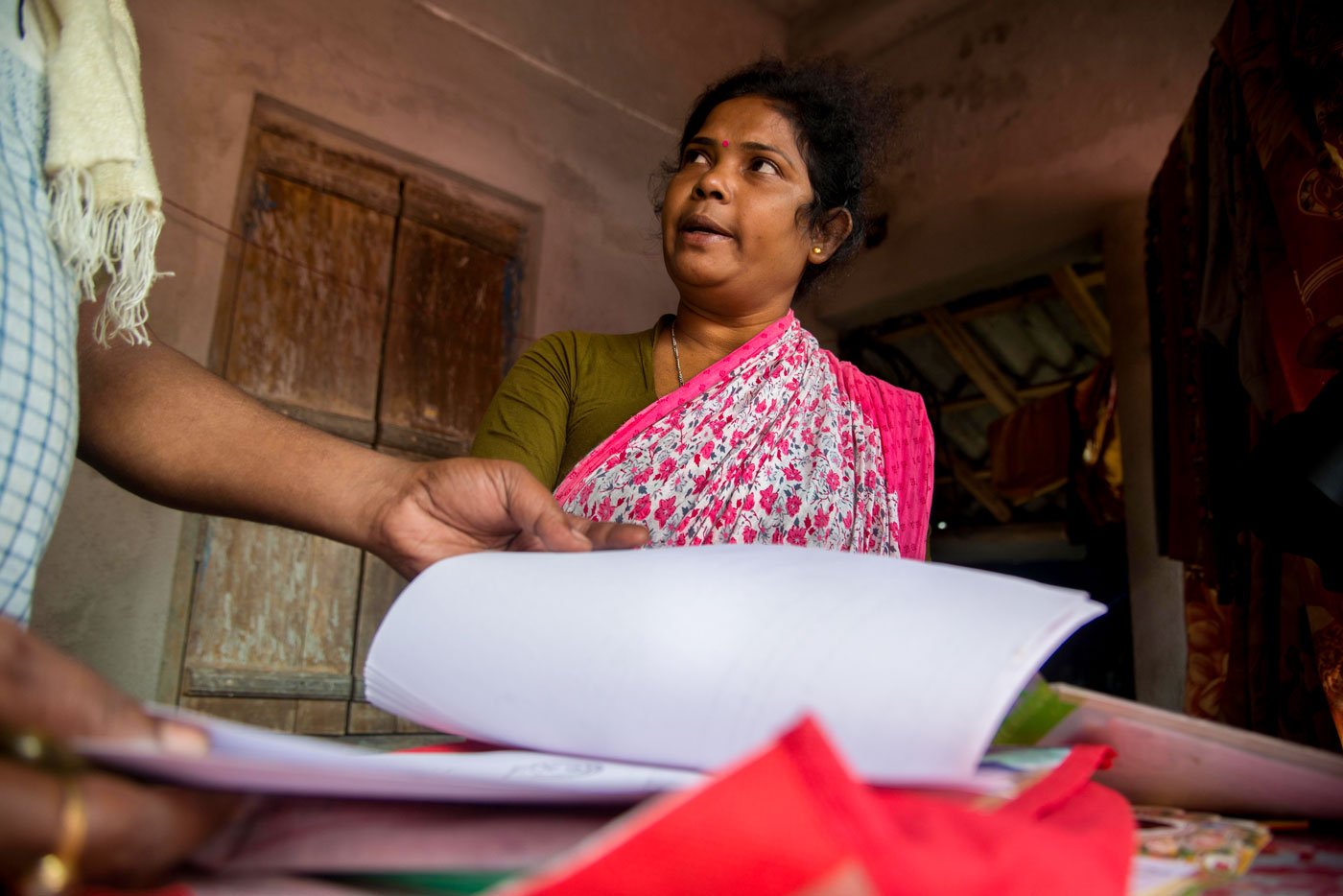
A letter from the local District Legal Service Authority arrives asking Pushpa to appear in Kolkata for the next hearing of her claim for compensation after Arjun’s death
But the bureaucratic maze and legal costs involved often deter the families from applying. In 2017, a PARI investigation through Right to Information ( RTI ) applications filed in 2016 showed that in the preceding six years only five women had filed for compensation. Of those, only three received it and that too was not the full amount.
Arjun used to make many trips into to the Sundarbans reserves to catch crabs, each time going to the interiors of the forest for 2-3 days. He could make anything between Rs. 15,000-30,000 for his catch – depending on its size – which he sold to a middleman in the village.
The Sundarbans forest has a notified critical tiger habitat, or inviolable core area, of about 1,700 square kilometres, and a buffer area of about 885 square kilometres. In the buffer areas, some livelihood activities like catching fish and crabs, and gathering honey and wood, are allowed with a forest department permit and a boat licence. But entering the restricted areas invites heavy penalties. The family of anyone violating those restrictions could lose their legitimate ground for a compensation claim in case of death by tiger attack.
As the secretary of the Sundarban Rural Development Society, Arjun Mondal was closely aware of these risks. He had been actively involved in fighting compensation battles for many of the women of the area widowed by tiger attacks – at least 3,000 over three decades, or about 100 a year (as estimated by locals, non-governmental organisations and others).
Pushpa is unlikely to receive the compensation because Arjun died while fishing in the prohibited core area of the reserve forest. Chasing the claim also requires hiring a lawyer, trips to Kolkata and gathering documents – and she does not have the energy, health or money for any of this, especially with the loans incurred on the wedding.
Rahul isn’t sure how these debts will be repaid. “We may have to start selling household items,” he says. Or worse, his mother fears, he will have to turn to the jungles for a living, like his father.
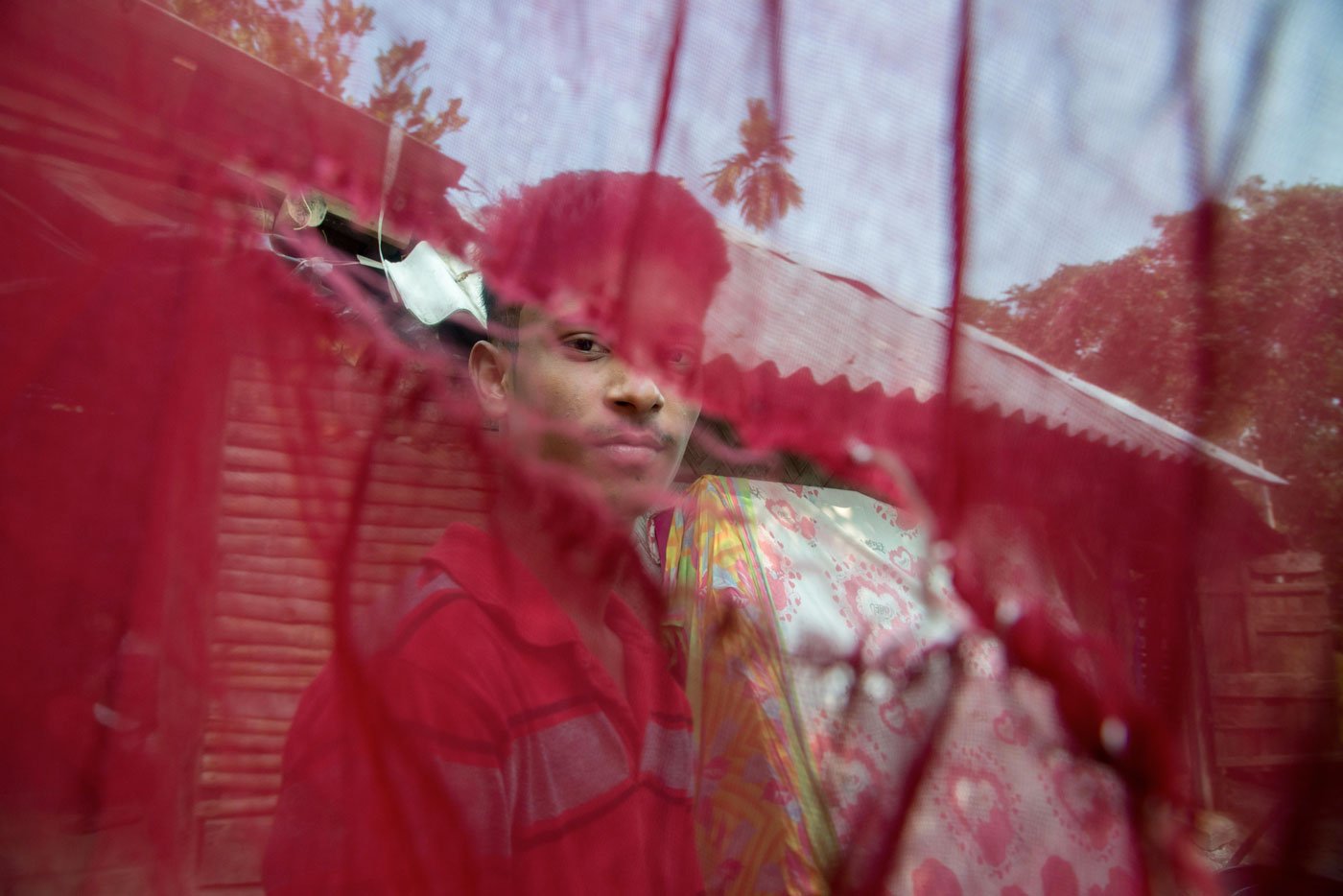
At 20, Rahul Mondal feels the pressure to earn for the family after his father’s death: 'We are struggling at the moment, but I’m hopeful I’ll turn things around someday'
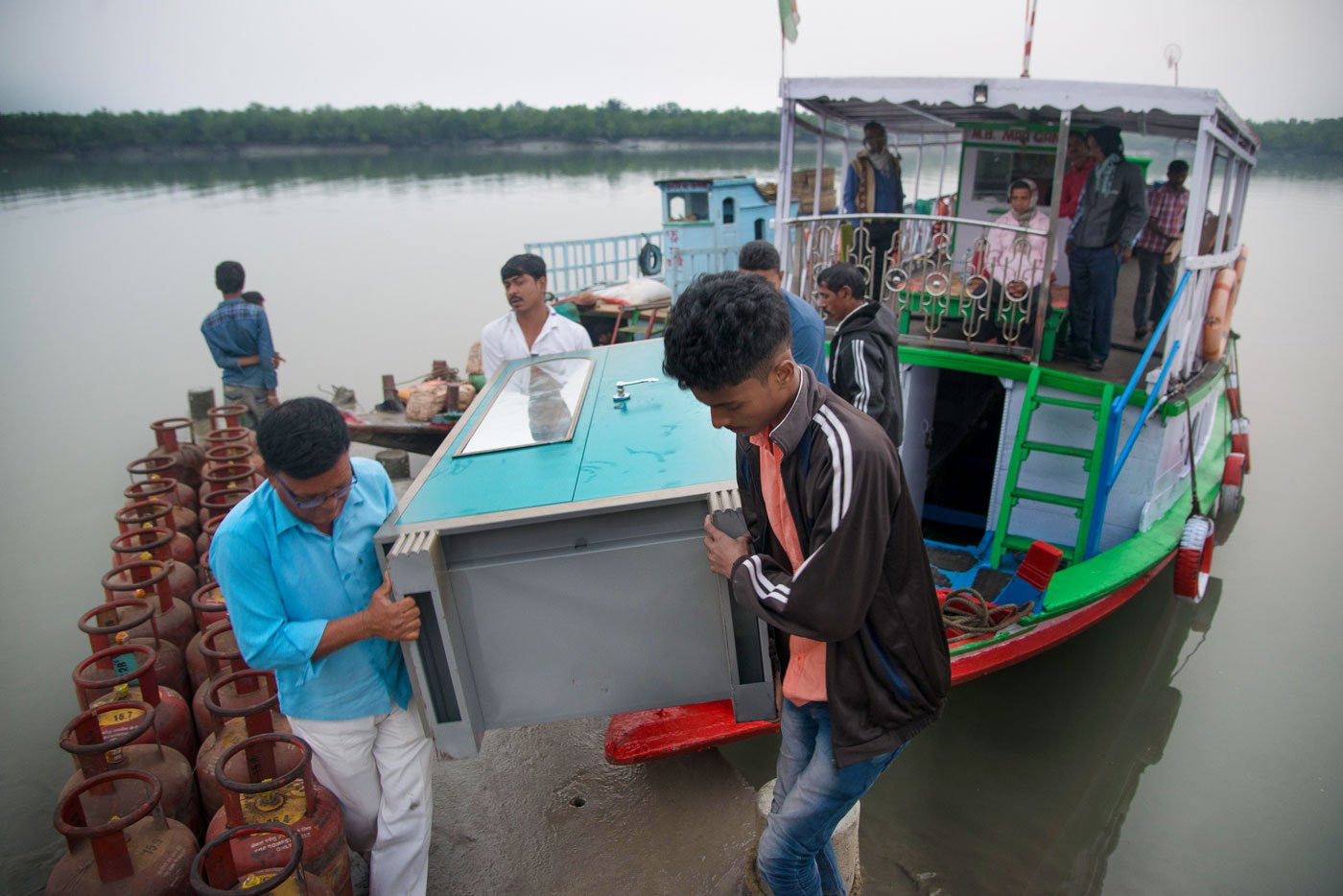
Rahul (right) and Mithun, a relative, offload an almirah bought for Priyanka's wedding, with the help of two locals. It takes five hours for a cargo boat to reach Rajat Jubilee village from Gosaba, the nearest town
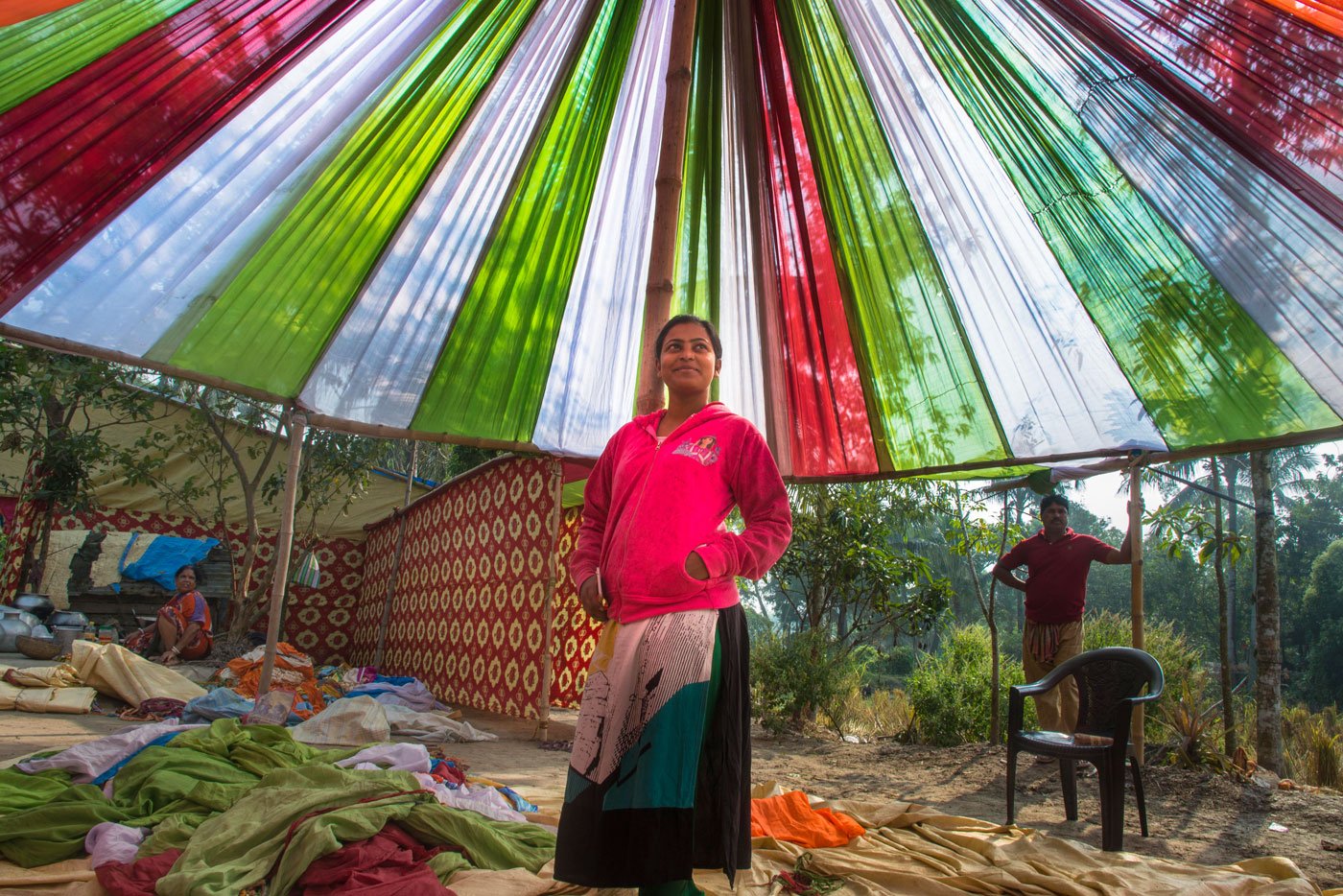
Priyanka surveys the decorations before the ceremonies begin
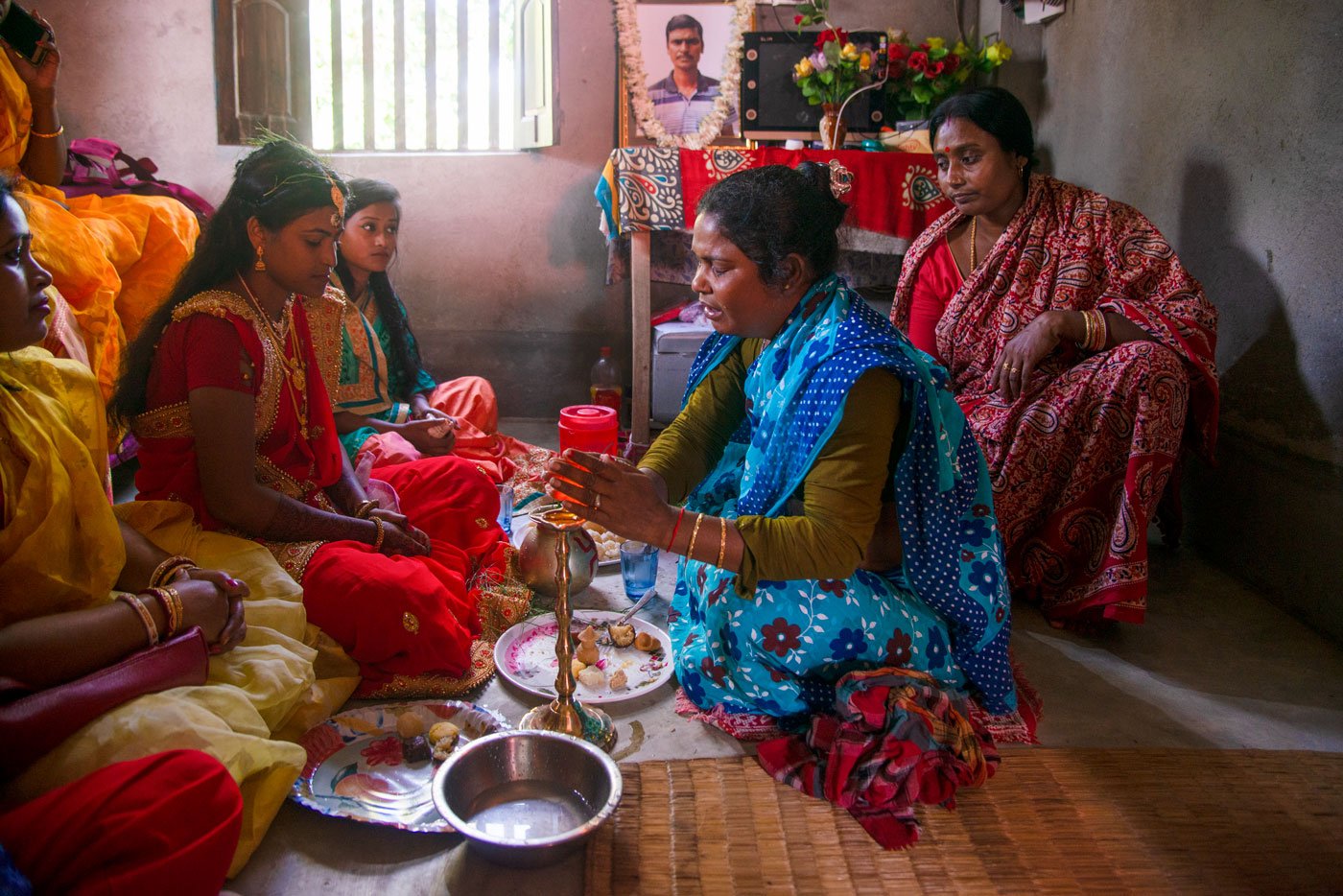
Pushpa performs the ashirbaad ceremony to bless her daughter on her wedding day
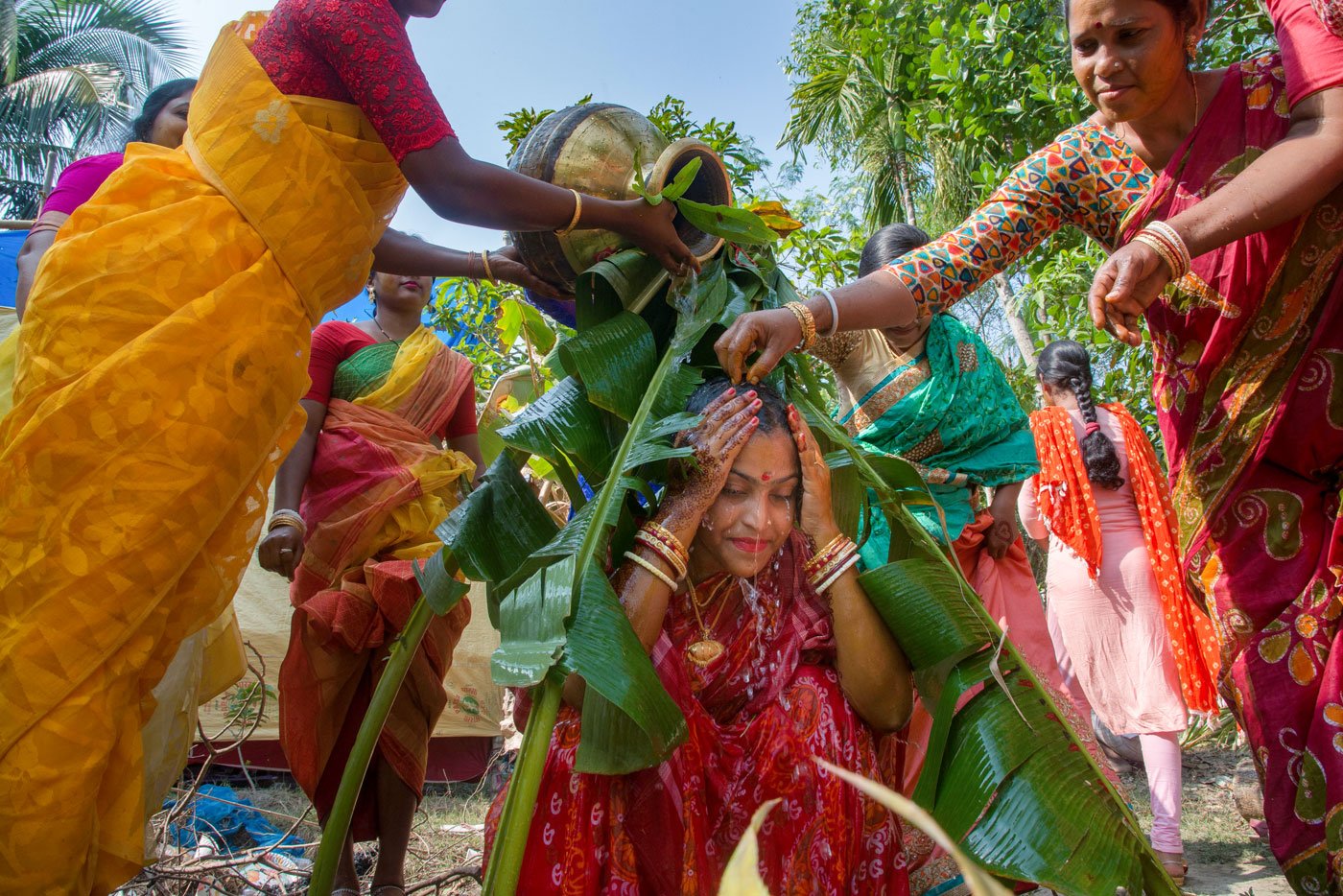
Relatives pour water on Priyanka at the gaye holud ceremony, a ritual bath of the bride with turmeric paste on the morning of the wedding
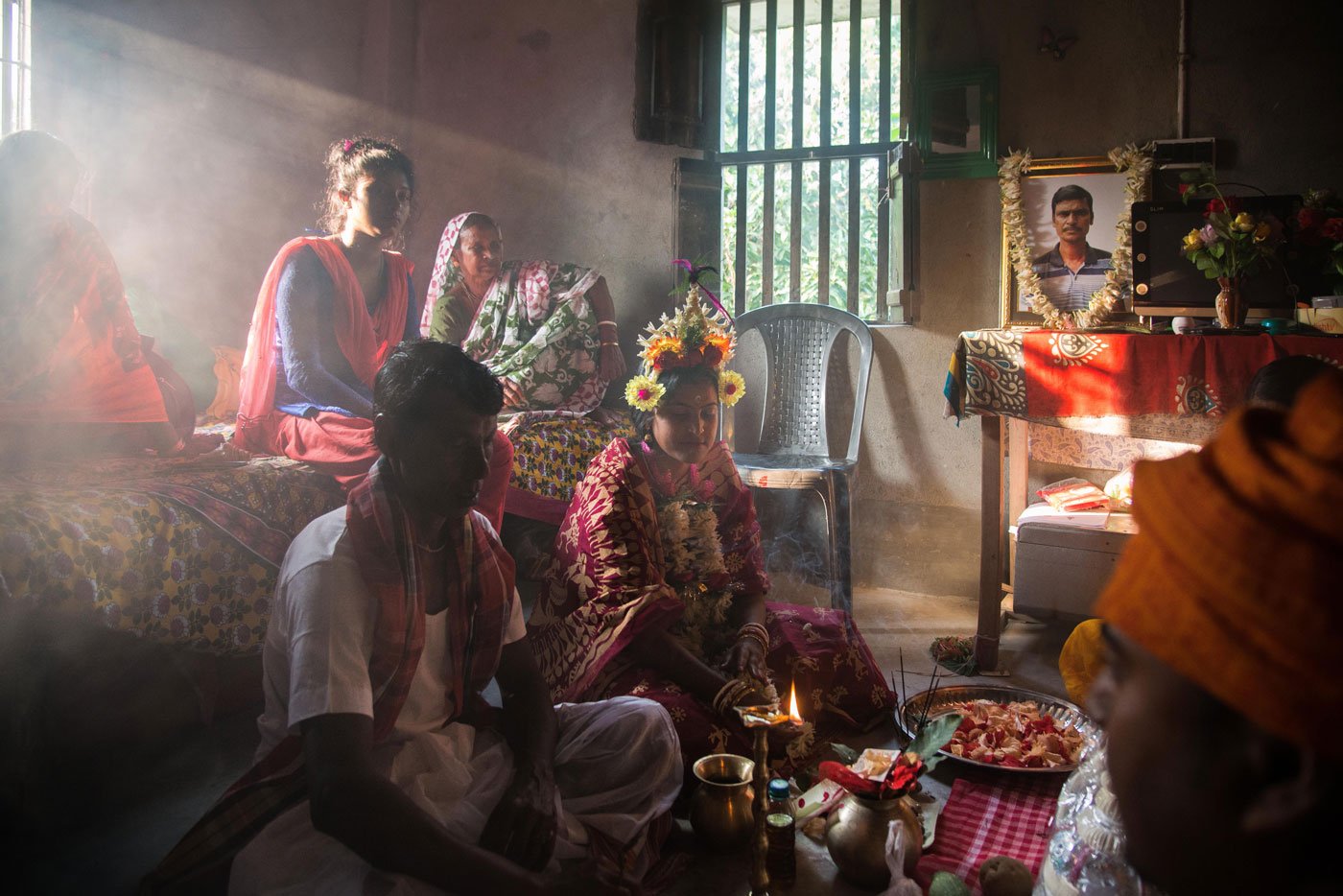
Priyanka and her relatives at a pre-wedding ceremony in the afternoon
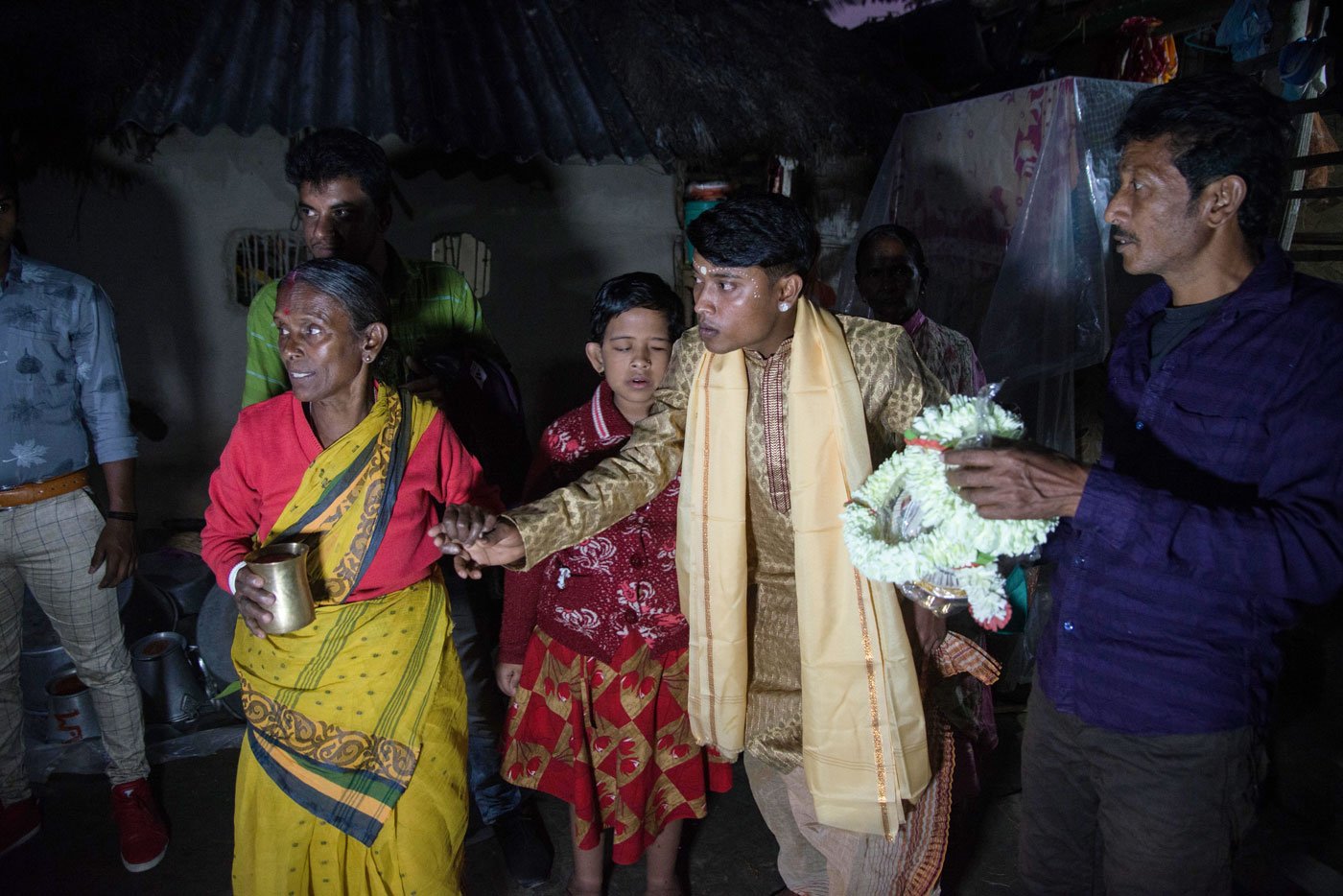
Hiranmay (centre), Jhumpa, his visually challenged niece (to his right), and other family members leave for the wedding venue
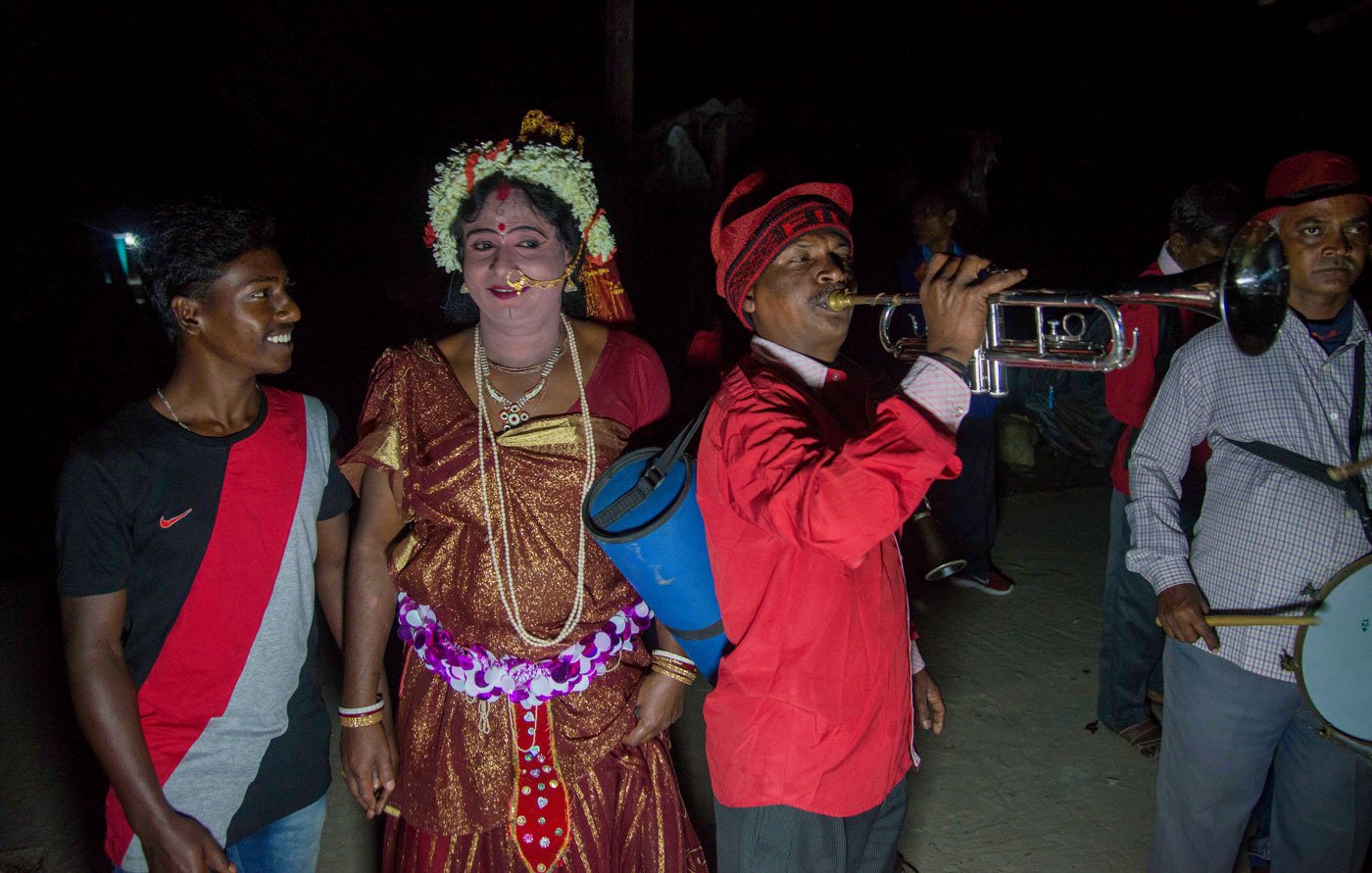
Folk artiste Nityananda Sarkar (second from left) and his band perform in Hiranmay’s wedding procession
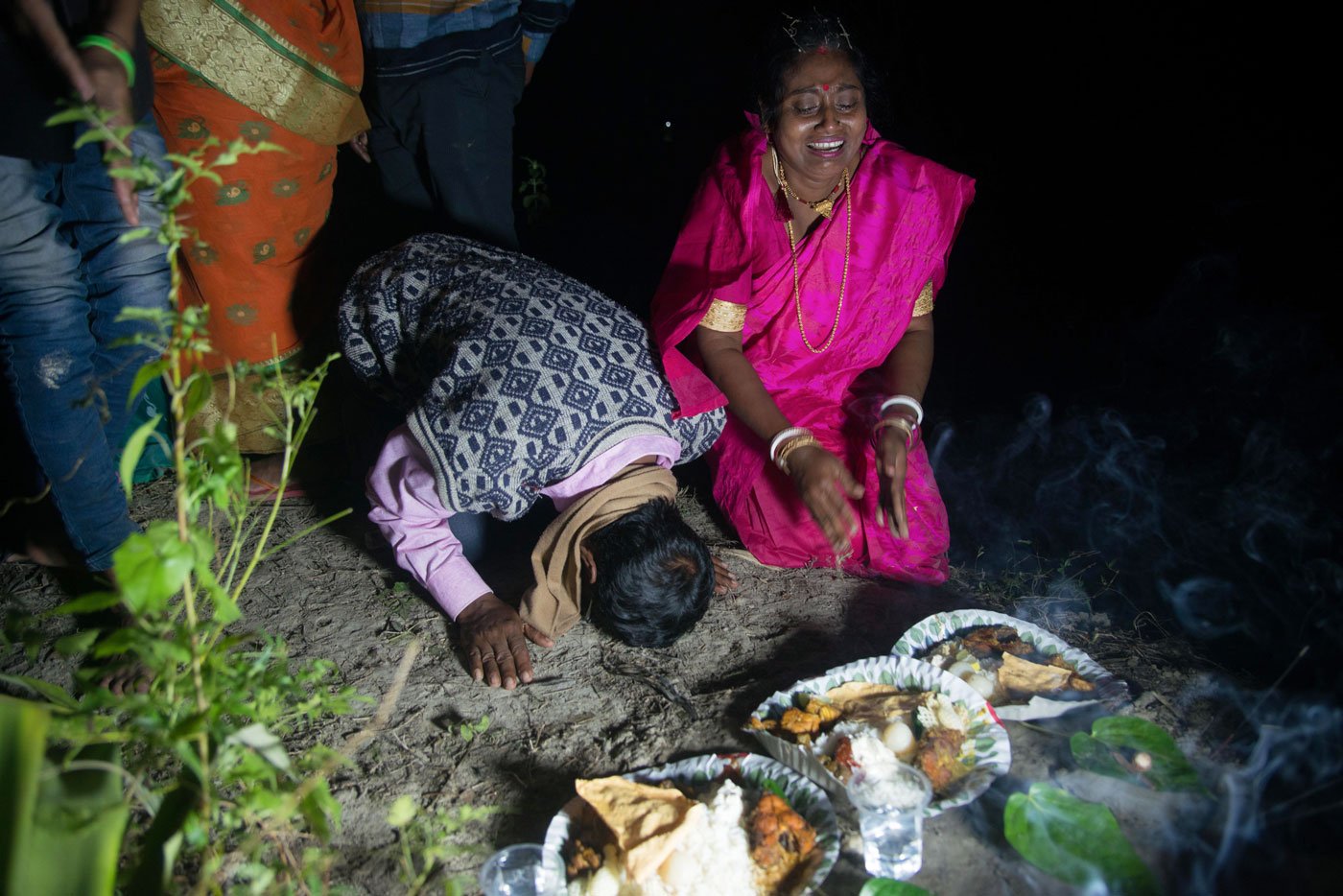
Arjun Mondal’s relatives break down while offering food to his departed soul
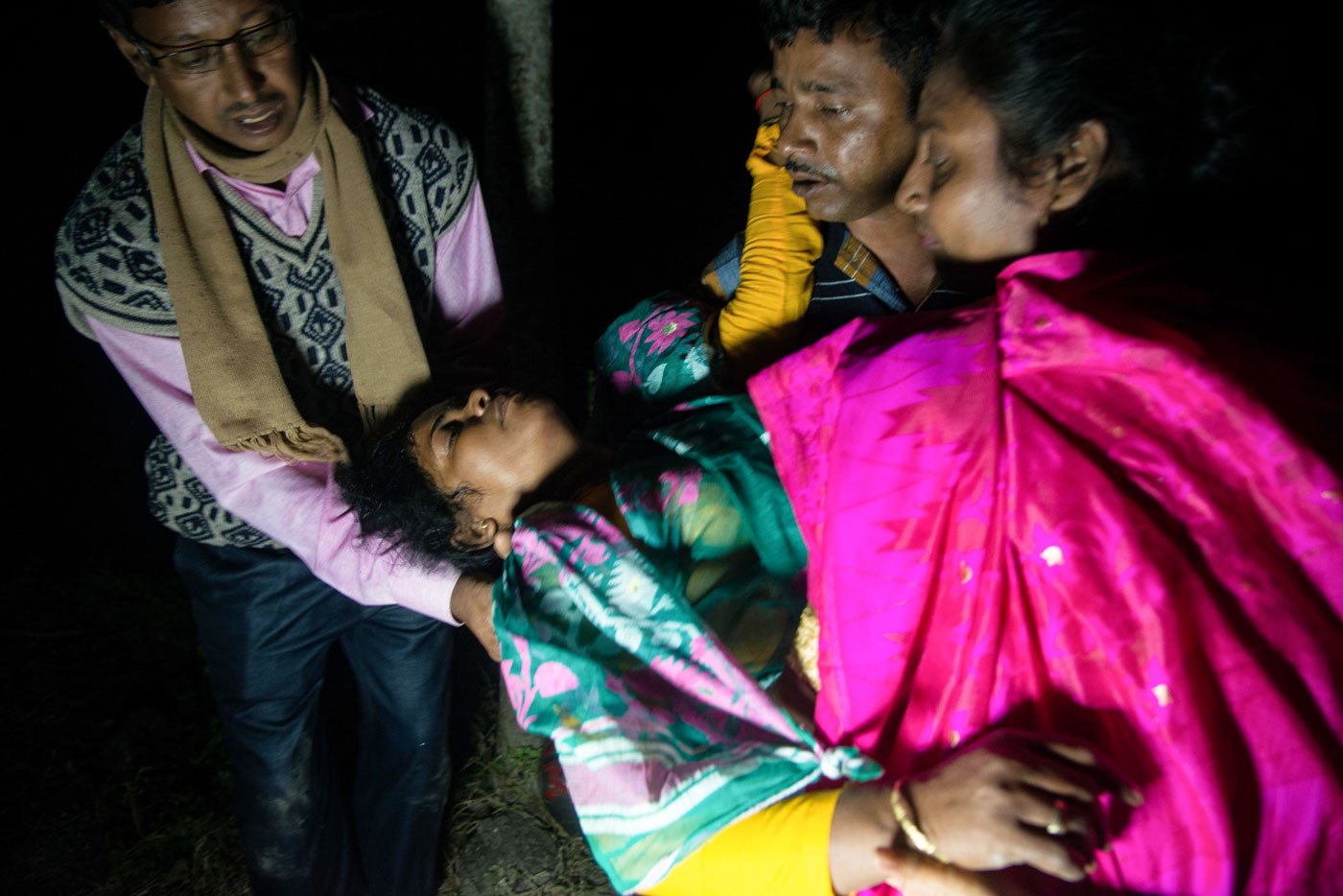
Pushpa struggles with chronic depression and stress. She fainted more than once during the ceremonies
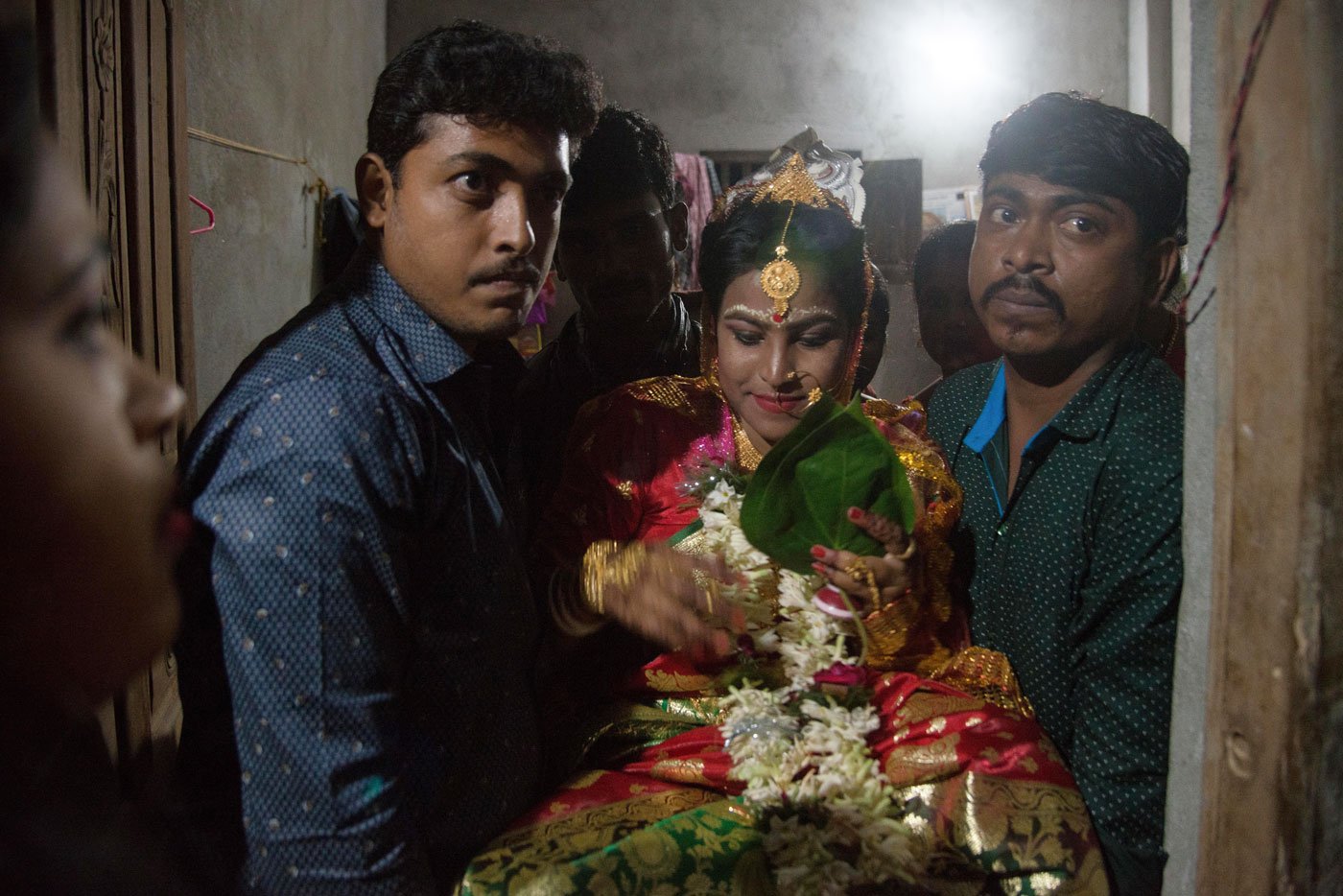
Relatives lift Priyanka on a wooden plank and take her to the altar. She holds betel leaves to cover her face before she sees the groom
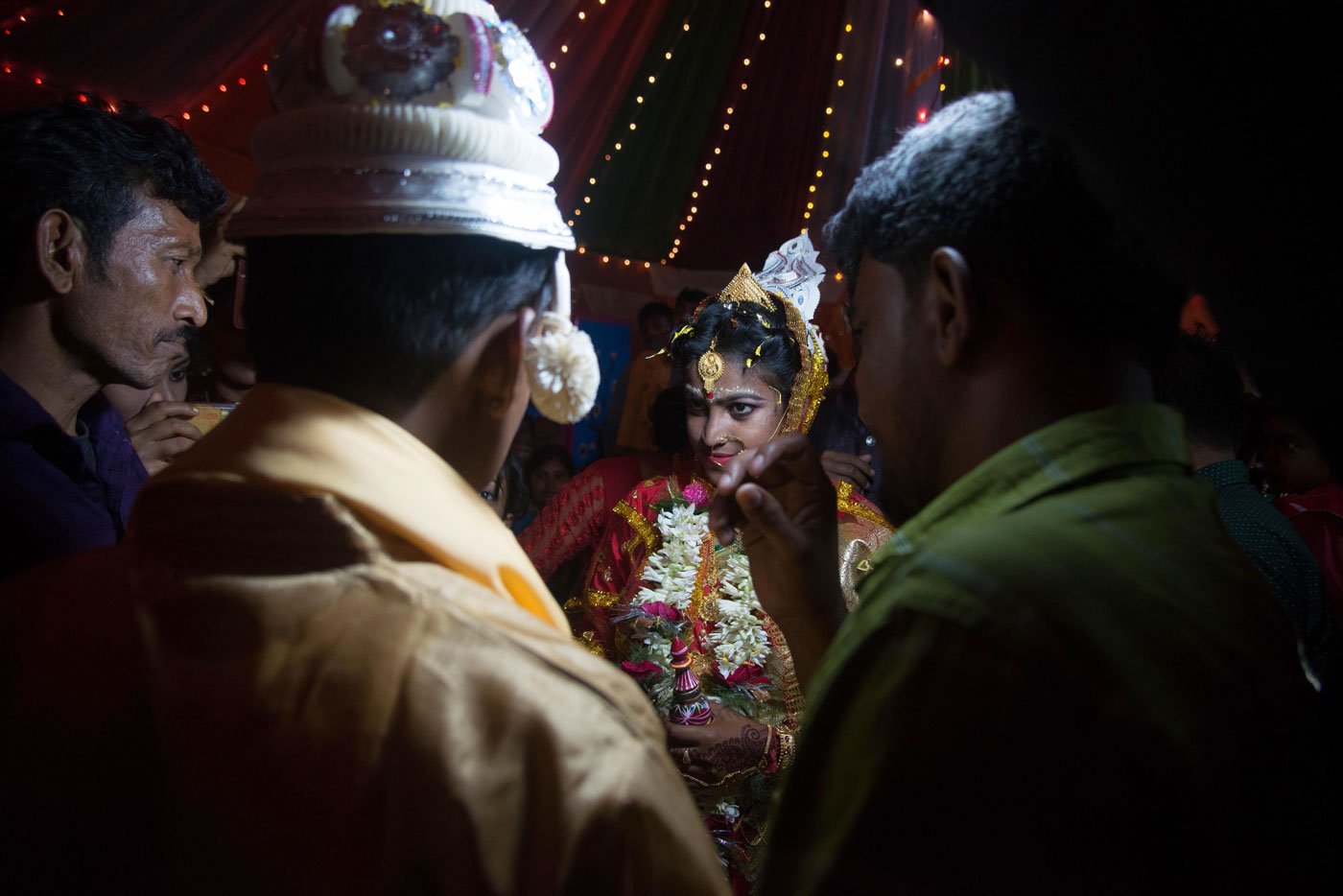
Priyanka during subho drishti , the moment the bride comes face-to-face with her groom at the altar
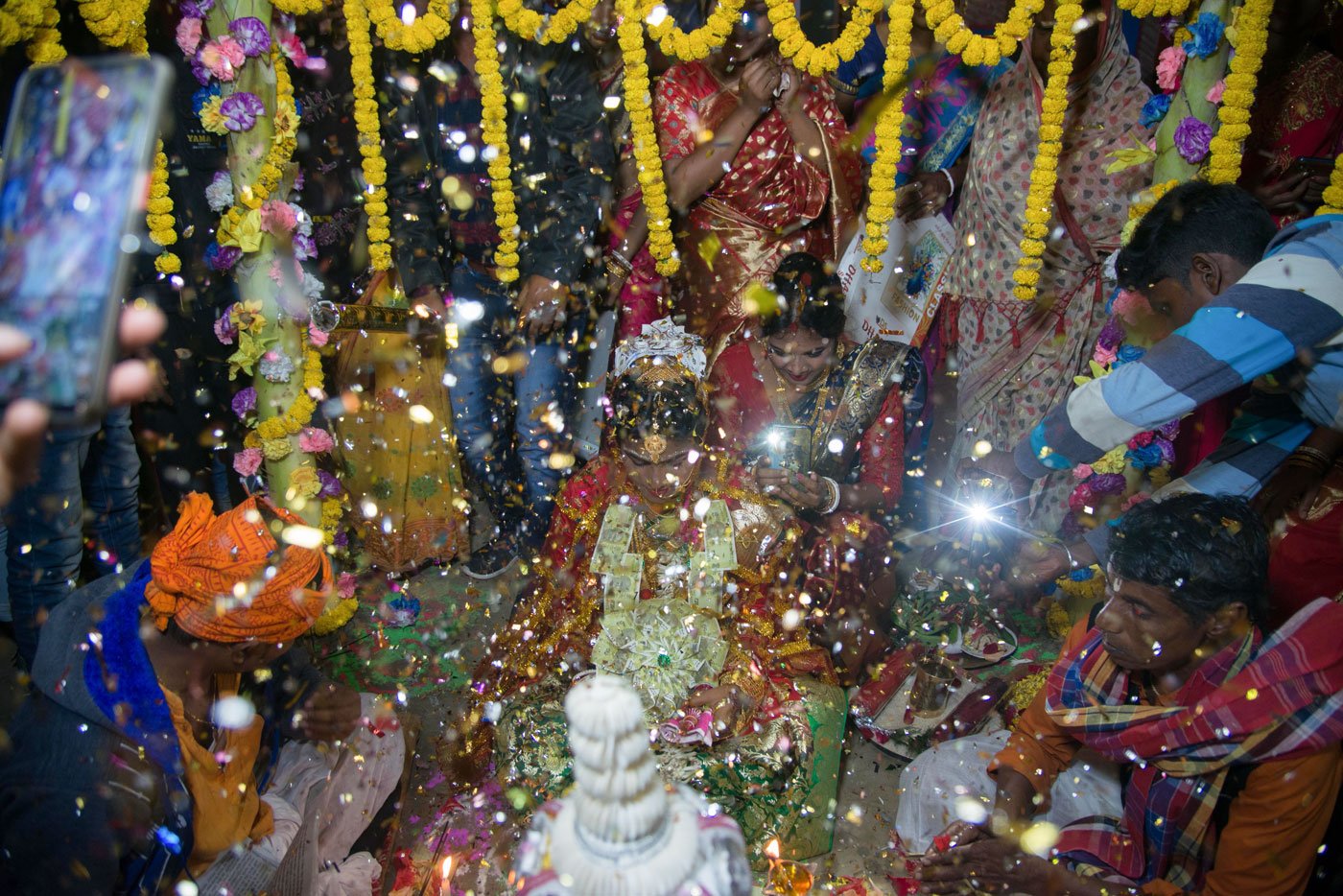
Hiranmay and Priyanka are finally married and they are drenched in glitter in celebration
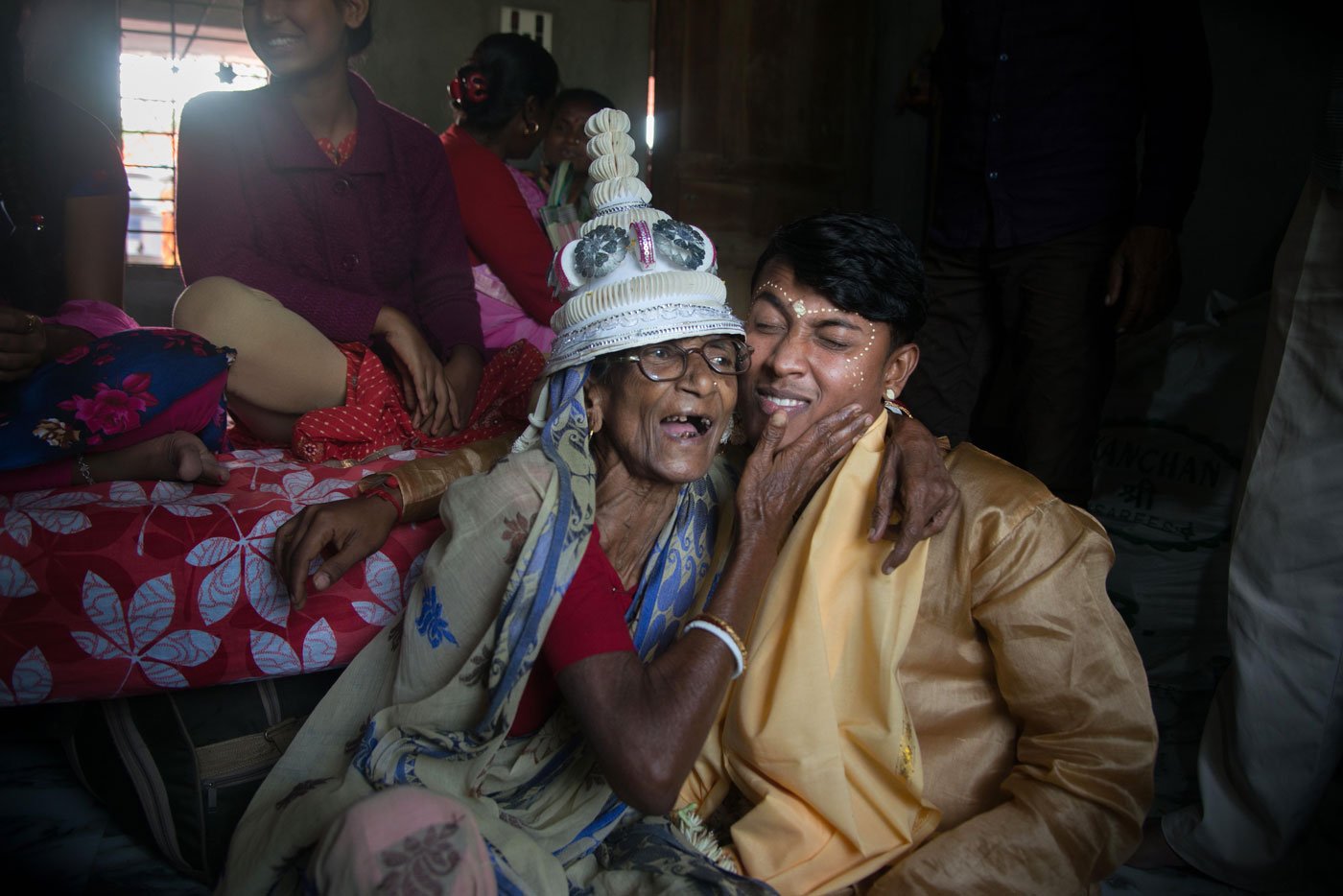
Priyanka's elderly relative cracks a joke with Hiranmay. It is customary for older women to playfully tease the groom
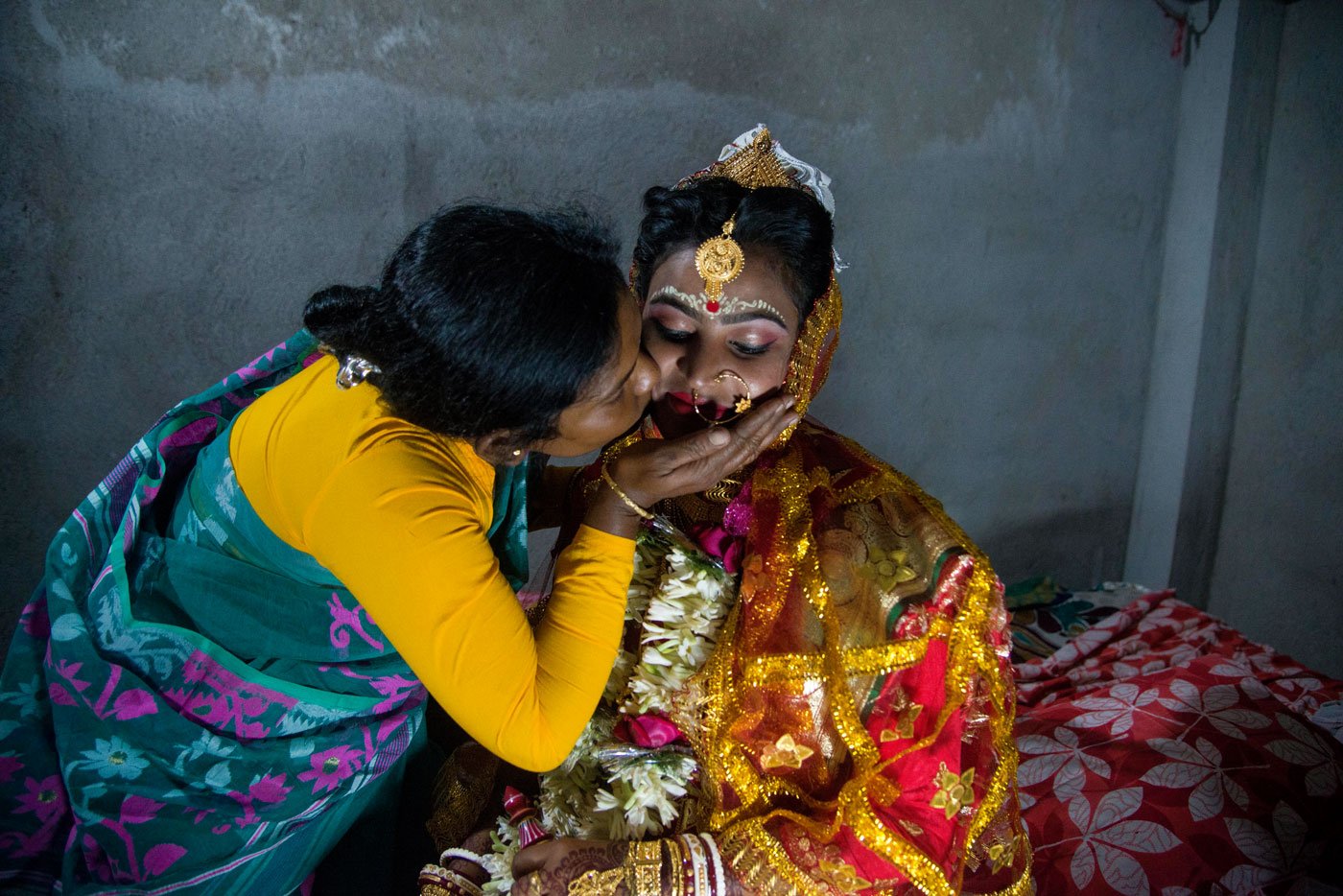
Pushpa blesses her newly wedded daughter
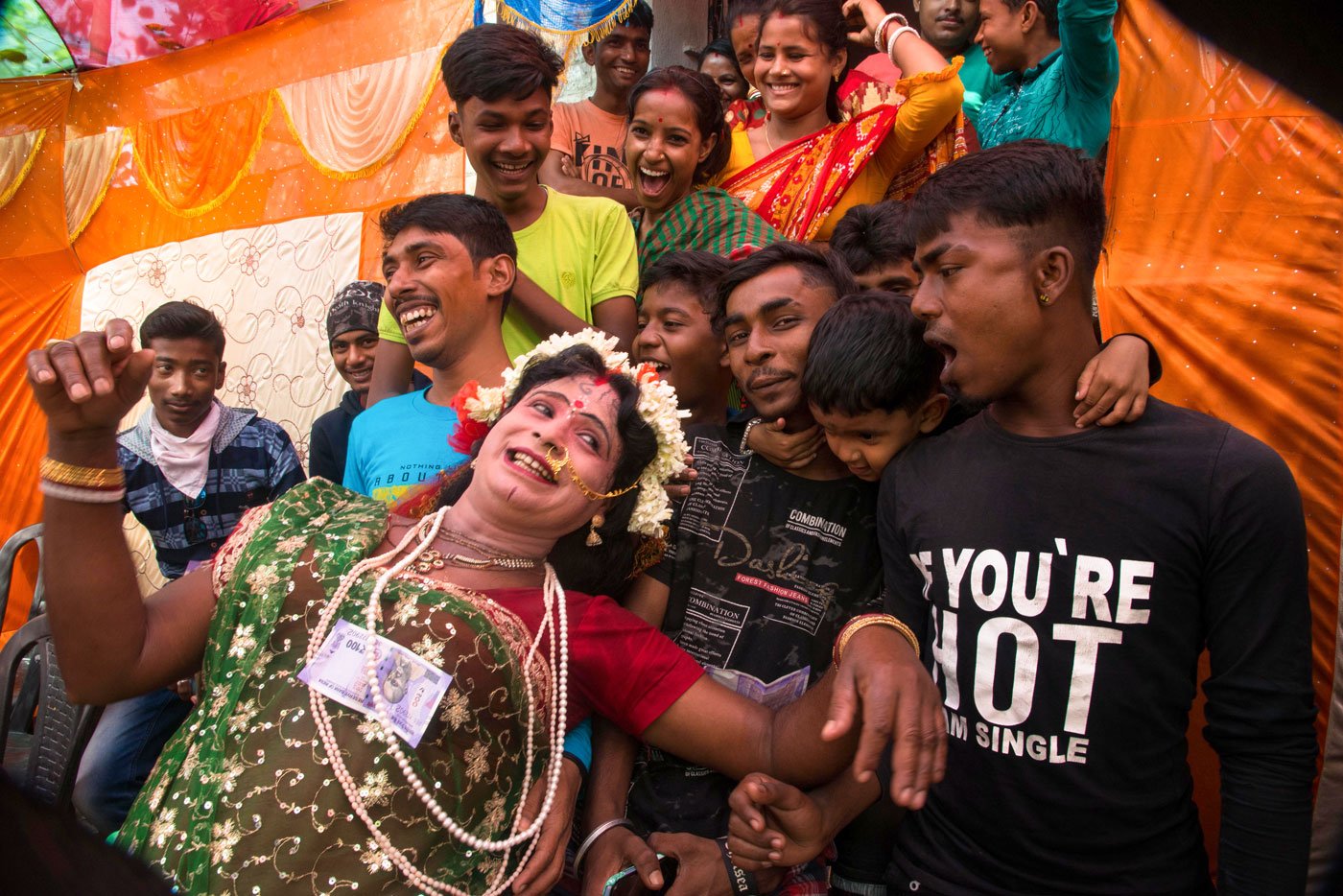
Nityananda Sarkar entertains the wedding party with his performances. He is a farmer as well as an artiste who performs various folk art forms like Jhumur songs, Ma Bonbibi dramas and Pala Gaan
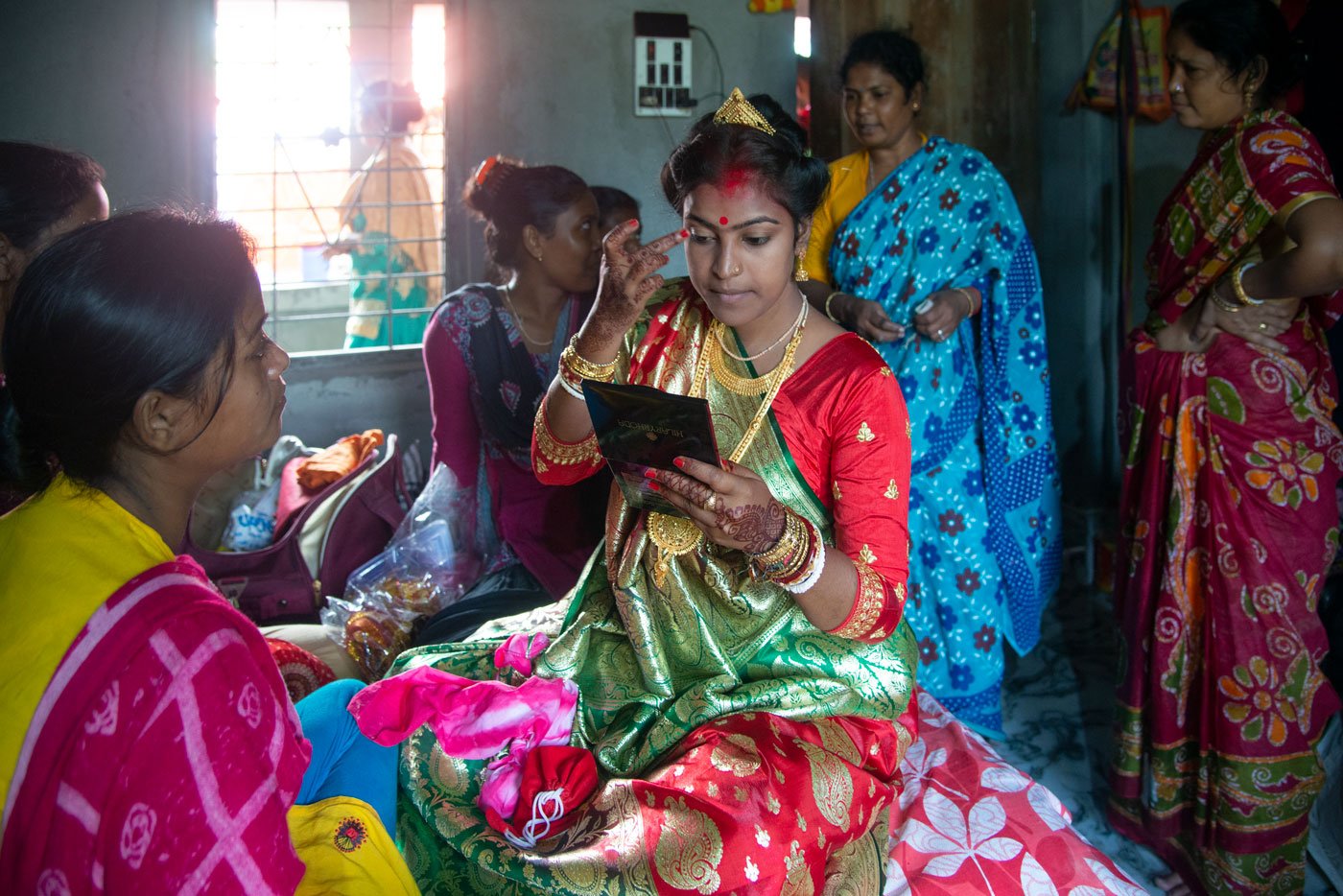
After spending the night in her home, Priyanka gets ready to leave for Hiranmay’s residence
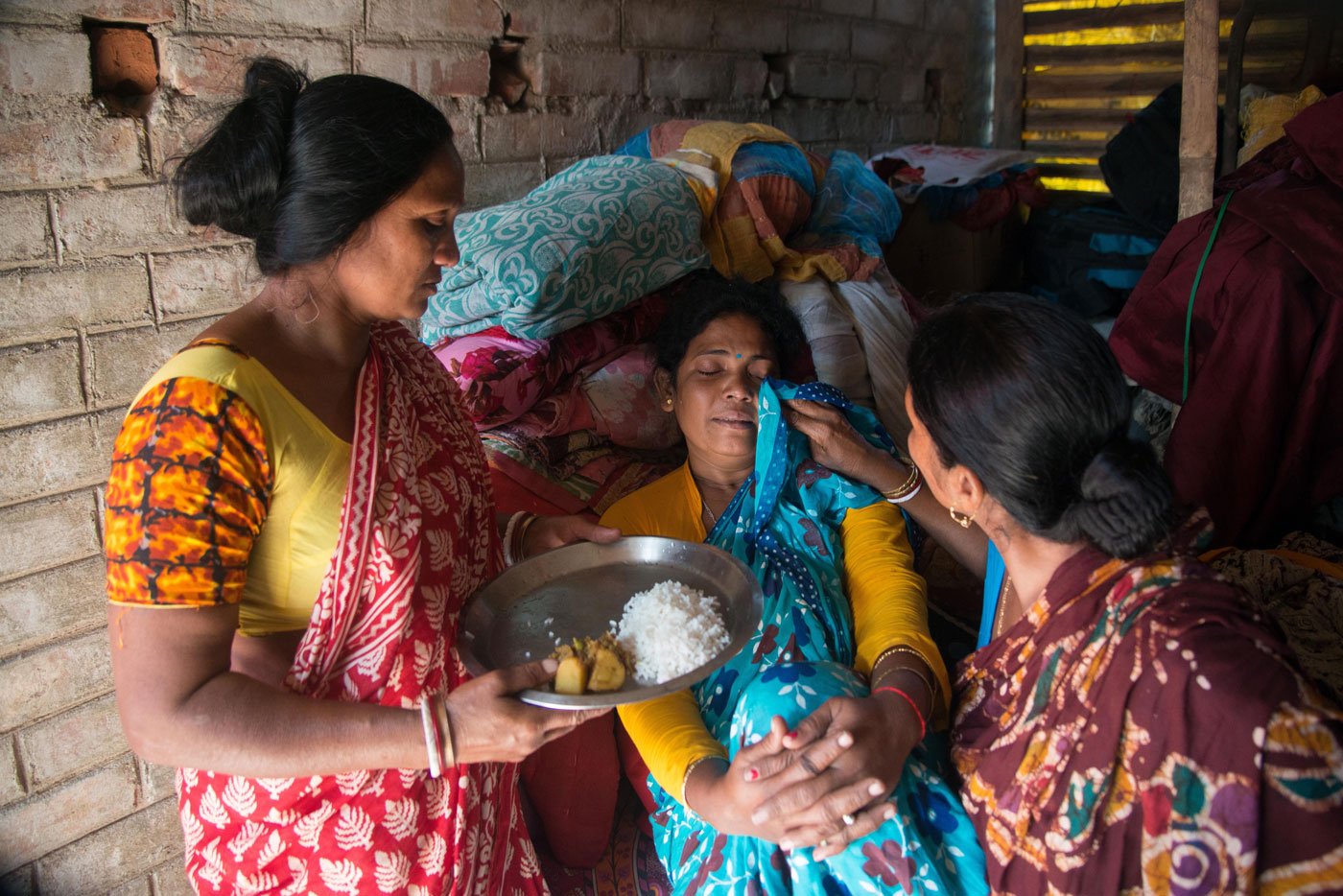
Pushpa breaks down in the kitchen at the thought of her daughter leaving. 'She was like a pillar to me. Now she's going forever, how am I to survive without her?' she cries
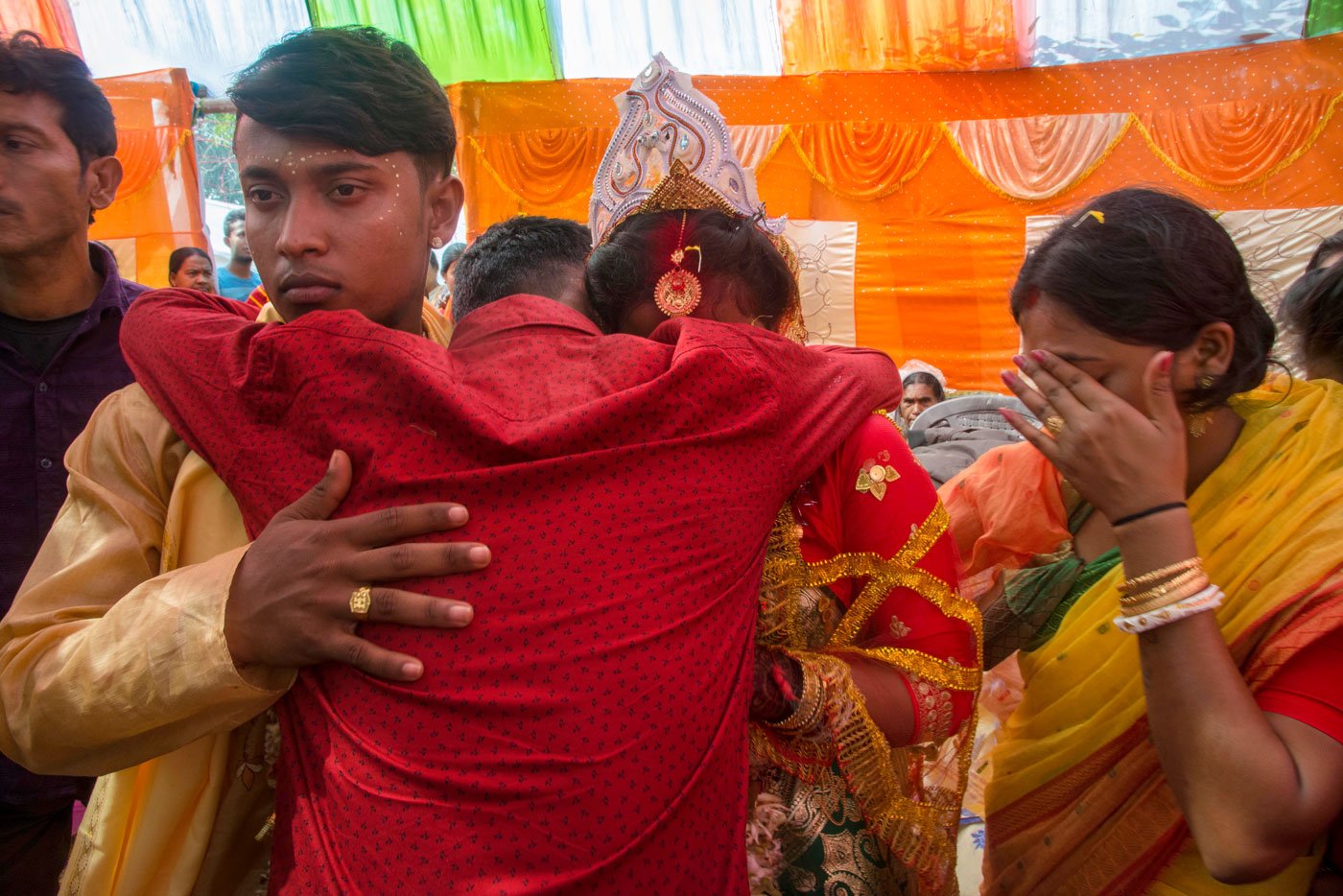
Rahul Mondal breaks down while hugging his sister and brother-in-law as they prepare to go
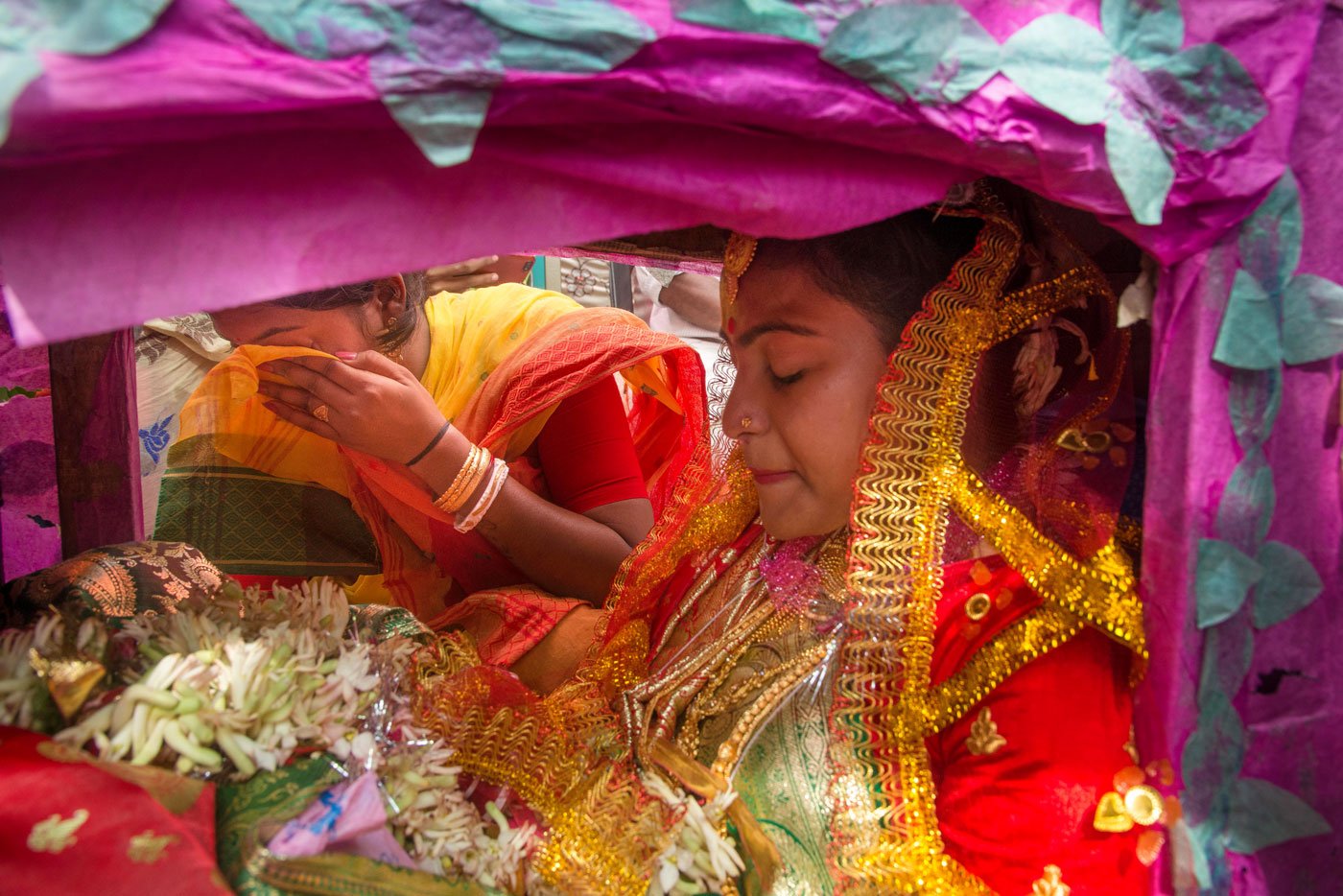
A tearful Priyanka sits in the palanquin that will carry her to her new home
The text of this story has been written by Urvashi Sarkar. It includes reporting from her own work for PARI and that of Ritayan Mukherjee.
